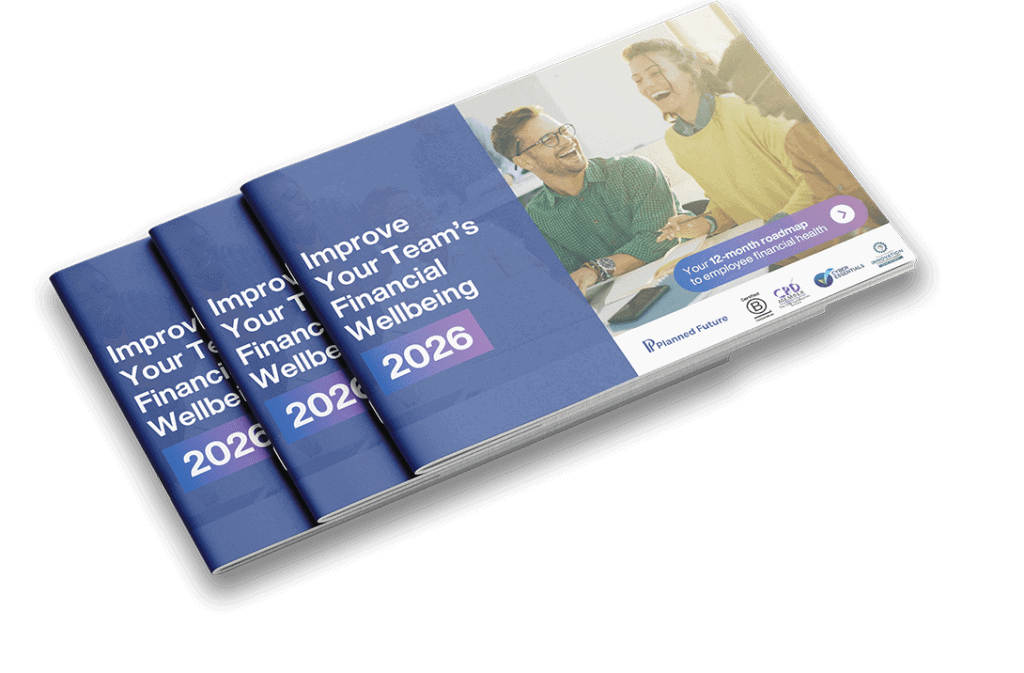Planning for Retirement and Later Life

Planning for retirement and later life combines financial stability with being ready for the lifestyle changes that come with retirement.
The idea of leaving the workforce and having the freedom to pursue personal interests is appealing, but it also requires careful planning and preparation. To ensure a smooth transition, it’s essential to address both lifestyle and financial factors. Here are some key considerations to help you plan and prepare for a fulfilling retirement.
Planned Future offer a range of courses to help you and your colleagues prepare for retirement. Our full day retirement event not only covers everything financial, but also involves offers an overview of the mental considerations to make when reaching retirement.
Lifestyle Adjustments in Retirement
Health and Wellness
Regular Exercise
Maintaining physical health is crucial in all stages of life. If possible, incorporate regular exercise into your routine to keep your body strong and flexible. Activities such as walking, swimming, yoga, and strength training are excellent choices.
Healthy Diet
Nutrition plays a vital role in maintaining health. Focus on a balanced diet rich in fruits, vegetables, lean proteins, and whole grains. Avoid excessive sugar, salt, and processed foods.
Regular Check-ups
Schedule regular health check-ups and screenings. Staying on top of your health can help detect potential issues early and manage chronic conditions effectively.
Social Connections
Stay Connected
Social interactions are vital for mental and emotional well-being. Stay in touch with family and friends, join clubs or groups, and participate in community activities.
Volunteer Work
Volunteering is a great way to stay active, meet new people, and contribute to your community. It can provide a sense of purpose and fulfilment.
Hobbies and Interests
Pursue Passions
Retirement offers the perfect opportunity to dive into hobbies and interests you may have set aside during your working years. Whether it’s gardening, painting, photography or learning a new skill, engaging in activities you love will keep you mentally and emotionally satisfied.
Lifelong Learning
Consider taking courses or attending workshops to learn something new. Many communities offer adult education programs that cover a wide range of topics.

Financial Adjustments in Retirement
Understanding UK Pension Schemes
State Pension
Ensure you know your State Pension age and how much you are entitled to. The full new State Pension is currently £221.20 a week, but the amount can vary based on your National Insurance record.
Workplace Pensions
Most employees are enrolled in a workplace pension scheme. This can be a defined benefit (final salary) or a defined contribution scheme. Check with your employer for details and ensure you are maximizing any employer contributions.
Private Pensions
Personal pensions are an option for those who want to save more for retirement. This includes stakeholder pensions and self-invested personal pensions (SIPPs), which offer greater flexibility in how your money is invested.
Budgeting
Create a Retirement Budget
Outline your expected expenses, including housing, bills, travel, and leisure activities. Compare this with your expected income from any pensions and retirement savings.
Adjust Spending
You may need to adjust your spending habits to align with your retirement income. Identify areas where you can cut costs without sacrificing your quality of life.
Healthcare Costs
NHS Services
The UK’s NHS provides a range of free services, but consider the costs of any private healthcare or additional treatments not covered by the NHS.
Long-Term Care
Plan for potential long-term care needs. While the NHS covers some aspects of care, residential care or home assistance can be costly. Look into options like long-term care insurance or setting aside savings to cover these expenses.
Estate Planning
Wills and Trusts
Ensure your will is up-to-date and consider establishing a trust to manage your assets. This will help protect your estate and ensure your wishes are carried out.
Power of Attorney
Designate a power of attorney to make financial and healthcare decisions on your behalf if you become unable to do so.

Emotional Preparation in Retirement
Mindset Shift
Embrace Change
Retirement can be a significant lifestyle change. Embrace the transition with a positive mindset and be open to new experiences and opportunities.
Set Goals
Setting new personal goals can provide direction and motivation. These could be related to health, travel, learning, or community involvement.
Seek Support
Counselling
If you find the transition challenging, consider speaking with a counsellor or therapist. They can provide strategies to cope with the emotional aspects of retirement.
Peer Groups
Join retirement groups or forums to connect with others who are going through the same transition. Sharing experiences and advice can be incredibly helpful.
Adjusting for Retirement
By addressing both lifestyle and financial factors, you can ensure a smooth and fulfilling transition into retirement.
Remember to stay active, maintain social connections, and keep an eye on your financial health.

